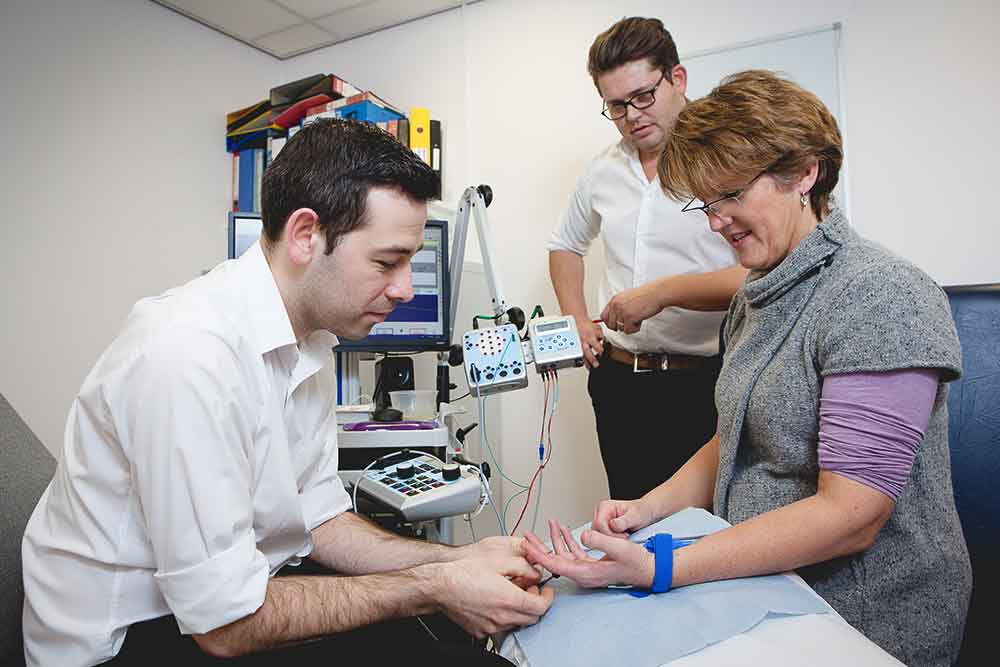What is Higher Specialist Scientist Training and why am I doing it?
- Published on
- 23rd June 2016
- Filed under
- HSST
By Lowri Hughes, HSST (Genetics), previously featured on NHS Employers
Lowri is a clinical scientist working in genomics, her role involves analysing patient DNA to try and determine the genetic cause of their condition, or the likelihood of inheriting a genetic disorder in their family. She is also involved in developing and improving of patient services, training (both within and outside the laboratory) and triaging samples to ensure they are tested correctly. On top of juggling her clinical scientist duties, she is also undertaking her higher specialist scientist training (HSST), which allows clinical scientists like her to expand their knowledge and expertise, making them eligible to apply for consultant scientist level posts on completion. In this blog Lowri talks about her experience of this specialist training.
HSST training experience differs for each trainee as scientists enter training from a range of backgrounds, from newly qualified clinical scientists through to senior scientists who have been working in their field for many years. As a result, individuals require customised training programmes across many different scientific specialisms to meet different skill gaps and interests, which has certainly been a big challenge for both trainees and trainers/assessors. As trainees, it’s hard to know what is expected when a new programme is introduced, and how do our assessors know what to assess us against, if training scenarios are different for each individual? While this is somewhat challenging, it highlights that HSST is a fluid and dynamic programme, which requires co-operation between trainees, trainers and training stakeholders. To ensure trainees voices are heard, I spend time being a trainee representative on a variety of committees, this allows me to feedback views from other trainees to the stakeholders who are designing and improving the programmes. This gives me great opportunity to learn about what goes on behind the scenes and understand why HSST can be so challenging.
Even though there are some challenges, there are some real positives to the programme too. I’ve had the opportunity to rotate around my department, expanding my skills in all the areas we cover which allowed me to become involved in more senior roles such as report authorising. I have interviewed new trainee scientists, implemented new sample pathways and participated in senior strategy meetings. I am also undertaking a professional doctorate in clinical science (DClinSci) with the Manchester Academy Healthcare Scientist Education (MAHSE) consortium. The HSST programme not only allows me to develop advanced skills in the workplace but provides opportunity for an academic qualification, which is focused around the key skills required of consultants in the NHS – leadership and innovation. I’ll be honest, in the past I have been sceptical about leadership courses, as I was a firm believer that this isn’t a skill that can be taught, but I will happily admit I was wrong.
While I do still believe that good leadership comes with experience, the leadership aspect of the DClinSci has taught me a huge amount about different types of leadership and professionalism theories. It has helped me realise the kind of leader I aspire to be and taught me how I can develop the professional skills to get there. It is also great for networking, as it’s given me the opportunity to meet other clinical scientists in a variety of disciplines and enabled me to discuss important issues and share ideas with them. The course at MAHSE has definitely been one of the highlights of the programme so far and is something I probably wouldn’t have done without HSST. The biggest challenge of HSST comes from being part of the first cohort. When we started there were a lot of unanswered questions about the programme. There are still creases to iron out but huge progress has been made in moulding the programme to give the maximum benefits to both trainees and their training departments. The key stakeholders have been keen to hear about trainees’ thoughts and experiences of the different aspects of the programme and have really listened to our ideas and acted on them to improve the programme.
Why I would recommend HSST?
For me, HSST provides an opportunity to improve my skills and to make me a better scientist. It also gives me opportunity to work with and learn from a variety of healthcare professions allowing me to develop key skills in management, leadership and innovation, all of which are crucial to becoming a consultant and leader in the ever-changing landscape of the NHS. Being part of a new programme is a challenge, but one I am happy to be a part of, as it gives me the opportunity to shape the programme for future cohorts. My hope is that the skills developed during my training will allow me to one day become a consultant clinical scientist and give me the opportunity to really influence our services and make them as great as they can be for our patients.
You can find out more about the healthcare science workforce on our web pages.
